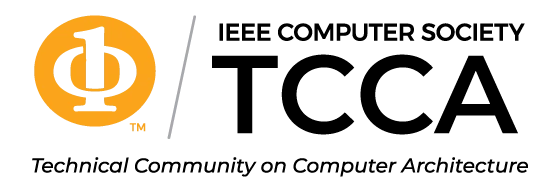Tutorials
SMC-IT/SCC is planning to hold the following tutorials as part of the main
workshop tracks:
By: Thomas Boyer-Chammard (JPL) and Celeste Smith (JPL)
F Prime is a free, open-source and flight-proven flight software
development ecosystem developed at the NASA Jet Propulsion Laboratory
that is tailored for small-scale systems such as CubeSats, SmallSats,
and instruments. F Prime comprises several elements: (1) an
architectural approach that decomposes flight software into discrete
components with well-defined interfaces that communicate over ports;
(2) a C++ framework providing core capabilities such as message queues
and an OS abstraction layer; (3) a growing collection of generic
components for basic features such as command dispatch, event logging,
and memory management that can be incorporated without modification
into new flight software projects; and (4) a suite of tools that
streamline key phases of flight software development from design
through integrated testing.
- Software Modeling using the F Prime Prime (FPP) Domain Specific Language
- Component Implementation
- Deploying to hardware and using the F Prime ground system
Advance enrollment is requested to confirm a seat at the tutorial. If
you are interested in participating or have any questions, please email
fprime@jpl.nasa.gov.
Introduction to NVIDIA Omniverse and Robotics Simulation in Isaac SIM (part of the Space Robotics Workshop)
When: July 18th @ 1:15 PM - 3:15 PM
IMPORTANT! Advance enrollment is required to confirm a seat at the tutorial. If you are attending
the Space Robotics Workshop and are interested in participating in this tutorial, please
fill out this form.
We will notify you as soon as we have the final count.
One day, everything that moves will be autonomous. Robotic automation has made significant strides
forward, driven by advancements in hardware and artificial intelligence capabilities that have opened
new avenues in simulation and the strive for autonomy.
This hands-on instruction-led tutorial will give a technical introduction to
the Omniverse and Isaac SIM platforms, a cutting-edge solution for robotics and simulation.
We will start off with a generic presentation section to introduce use-cases, value, and vision of the
platform and some examples of how it can be applied to the space industry. Next, we'll move over to a more
technical hands-on lab where you'll dive into the simulation loop of a 3D engine, learning to initialize
experiments with objects, robots, and physics logic, and build some small robotics control tasks and
applications within the simulation environment.
The hands-on piece is a technical beginner level, and thus you don't need any prior knowledge of
Isaac SIM, apart from basic Python understanding.
Note: We will use the NVIDIA Deep Learning Institute platform for the hands-on portion of this workshop.
Attendees will be handed a personal code during the workshop, that will give them access to one of
the self-paced paid courses. The codes will be shared during the workshop. These are personal,
and can only be redeemed to one specific course only. You can find more information on how to redeem
the DLI platform codes in the attached pdf. Additionally, course content and access to the environment
will be given for up to 1 year after the workshop.
This tutorial session will be led by instructors:
- Edith Llontop: Solutions Architect - Robotics, NVIDIA
- Teresa Conceicao: Solutions Architect Manager - Omniverse, NVIDIA
- Yizhou Zhao: Solutions Architect - Omniverse, NVIDIA
Requirements (click to expand)
- Skill set: Basic Python Understanding
- Nvidia Developer Account (sign up for free here).
- Technical Environment Requirements:
- Windows or Linux machine
- Internet access (i.e certain company laptop with IT access restrictions might pose a problem)
- Install Omniverse Launcher and Omniverse Streaming Client
Omniverse Streaming Client installation instructions
- Go to the Omniverse Download Page
- Scroll to the Omniverse Launcher section and download the respective necessary version
- Follow the steps to install the Launcher locally. Detailed documentation is available here.
- Install the Omniverse Streaming Client from the Omniverse Launcher Exchange Tab. More detailed instructions are available here.
Note: In this course, we will use an Omniverse application called Isaac SIM. More information and details can be found in the Isaac SIM documentation. However, you won't have to install Isaac SIM on your local laptop/machine for the workshop. Only the Streaming Client. It is also not required to have any previous knowledge of Isaac SIM, since this will be an introductory course.


